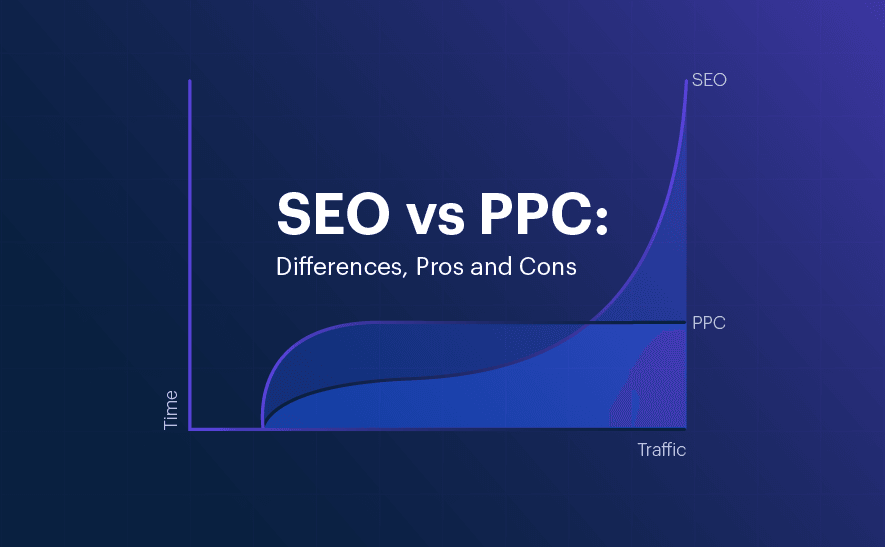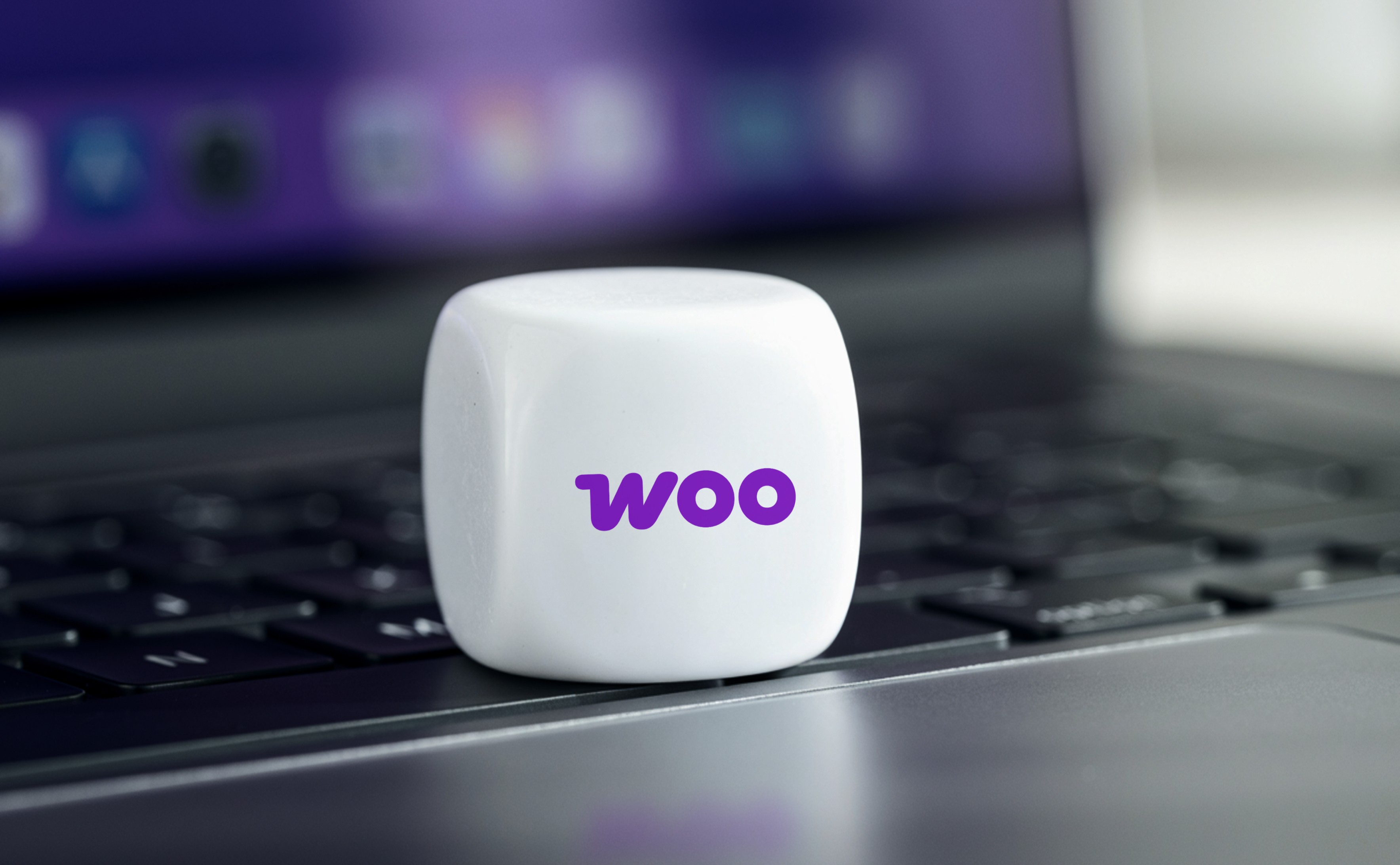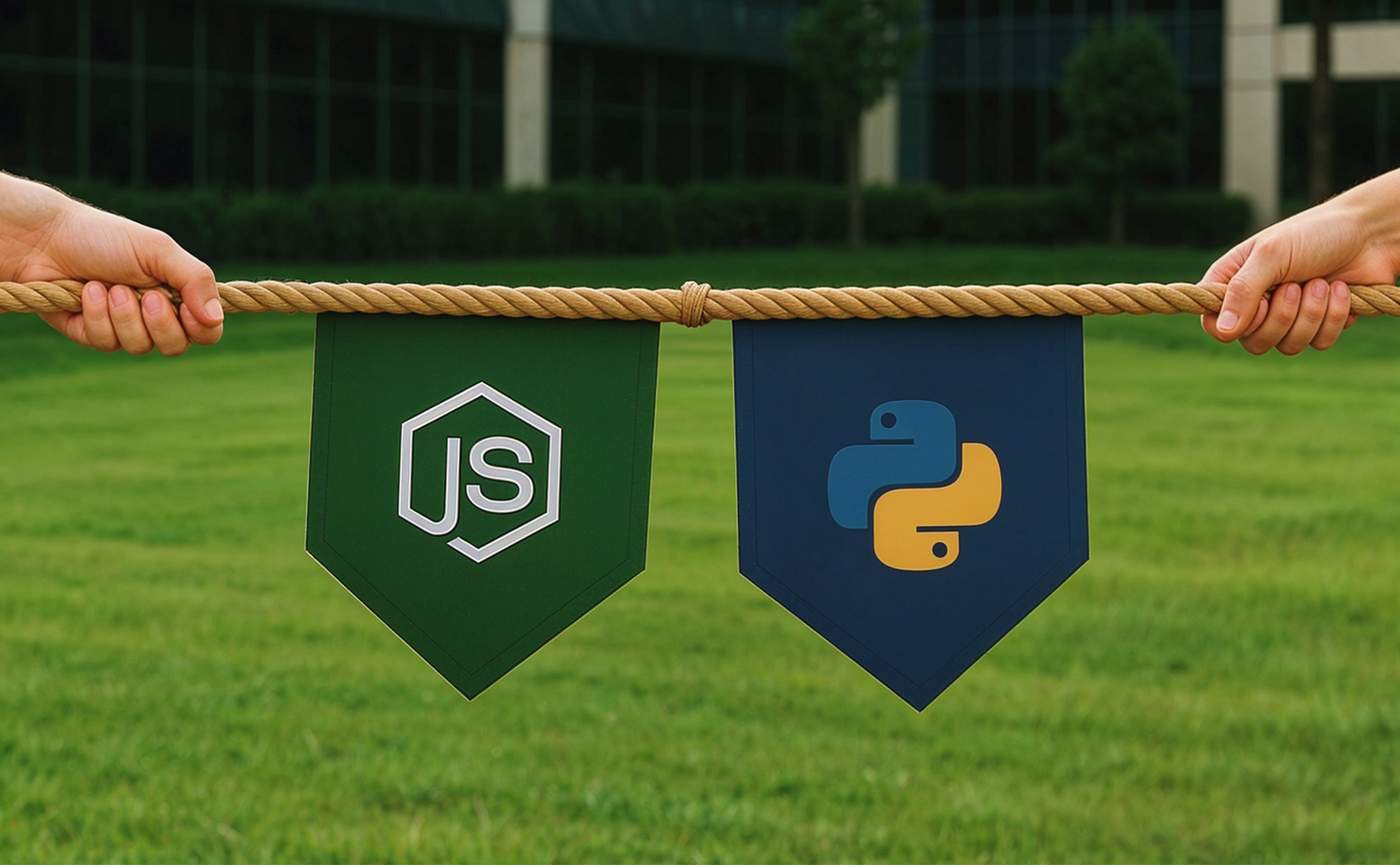SEO vs. PPC: Differences, Pros, and Cons—Which One Should You Choose?

If you’ve just launched a new business or have just taken it online and are not able to gain visibility and get more traffic to your website, you are not the only one facing this problem. Acquiring customers is not easy, especially in the beginning.
It is not easy to strike a balance between the expense, maintenance, and ROI of promotional activities. Businesses have a number of methods available to boost their website traffic, like blogs, newsletters, blogs with keywords, landing pages, social media posts, email marketing, SEO, and pay-per-click (PPC) ads.
Today we will examine SEO vs. PPC in some detail, and you can then determine which is more ideal for your business.
What is SEO?
To put it in simple terms, search engine optimisation refers to making your website appear attractive and relevant to search engine bots so that it ranks well in the search results, sending organic traffic to your website.
Today, people the world over search on Google, Bing, Opera, and other search engines when they want any information or to purchase something. When you optimise your website, you are enhancing its visibility for the search engines, so that your target audience has a greater chance of finding your business name when they search using words that are related to your product (keywords). The majority of inbound marketers swear by SEO. However, it is not a very simple process.
Where your business ranks on the result pages depends on several ranking factors that influence the search engine algorithm. SEO aims at creating web pages and content that align with the search engine algorithm so that it can get ranked higher in the SERPs. As Google is the search engine used the most—over a whopping 90% of the market share—most SEO strategies are built around Google and its ranking factors with regard to links, content, technical optimisation, and more.
Advantages of SEO
SEO will become more economical eventually
SEO doesn’t come cheap. It takes time, effort, and money to pay the agency, freelance professionals, and tools; however, in the long term, it is economical. Once you’ve created and posted content that drives organic traffic to your website, you don’t have to spend money repeatedly to ensure that your target audience sees it. You don’t have to pay when your potential visitors click on your links. SEO is also highly scalable.
You can target different stages of the sales funnel
Your leads and potential customers are not all going to be in the same stage of the sales funnel; from just beginning to know your brand at the top of the funnel to the bottom of the funnel, just about to purchase, and everything in between, you will find them. Blogs, case studies, infographics, and other content help optimise your site, helping you nudge your visitors to the next step in the funnel.
Organic traffic is more stable
After you rank on Google, you can plan and forecast organic traffic to your site; all you have to do is ensure it stays optimized. You can think of it as building your house. You may spend a lot initially, but once you’ve built it, it’s yours; you own it and can enjoy it for as long as you want.
Organic results help build authoritativeness
When you consistently appear on SERPs for your product-related keywords, it helps create trust and build brand authority with your potential customers. It signals to search engines that you have expertise in that subject, leading to increased backlinks from other authoritative sites—a ranking factor that search engines like.
Cons of SEO
Algorithms keep changing
Search engine algorithms keep changing very frequently, which means you have to keep up with the latest guidelines and your marketing tactics and revamp your SEO efforts.
Frequent optimisation
It’s not enough if you rank for your target keywords for a couple of months; it has to be done regularly so that your site continues to show up high in the SERPs. You may have to rewrite old blogs, repair broken links, remove old ones, etc.
SEO is slow for new domains
This is particularly true for new domains or sites. As multiple factors impact Google rankings, you will need time to establish them. It will not happen in a few weeks or months.
It necessitates expertise
Some technical skills are required to be able to understand your audience’s goals and deliver relevant, quality content to optimise the site correctly for search engines. Unless you have a full-fledged IT team in-house, you will not be able to do this. It makes sense to outsource your SEO to a professional agency.
What is PPC?
Pay-per-click is a method of search engine marketing where businesses pay search engines or social platforms every time a user clicks on their ad. This way, businesses only need to pay when a user interacts with their ad, unlike banner ads, which have to be paid for regardless of whether there is interaction or not. PPC ads are more likely to attract the attention of those who are interested in your products.
If you perform a Google search, you will notice that the top couple of results are marked with "ad," which means it’s not an organic result but a PPC ad. These ads are usually displayed along with organic results and are run for specific promotions with set start and end dates. Marketers bid on relevant keywords for their target audiences; the cost depends on the keyword search volume and the industry. PPC ads help you to compete in a packet market and gain an edge in case you’ve not yet established domain authority for organic ranking.
Advantages of PPC
Quick results
Unlike SEO, you can get almost instant results from PPC campaigns and don’t have to wait.
PPC ads appear above organic results
Your website will appear higher than the organic results on the SERPs if you have initiated a PPC campaign for specific keywords. This means that people who search will see your website first, and then the other websites.
You can pinpoint your target audience
With PPC campaigns, you can select your target audience based on a particular demographic, location, interests, etc.
You can test PPC ads
By running two separate ads at the same time, you can compare results and see which ad performs better. You only have to make minor changes to some elements, run them for a while, and then measure the results.
Disadvantages of PPC
PPC ads are expensive
Every time a user clicks on your ad, you have to pay the search engine or social network. Once your budget runs out, your traffic will peter out. It's not necessary that every user who clicks on your ad will consider buying your product, which means wasted money. If you are in a highly competitive industry, PPC ads can get very expensive.
Smaller profit margins
PPC ads can get you more traffic in the short term, but they give you lesser profits. This is because PPC ads are expensive; your cost of acquiring a customer is quite high, while your product price remains the same.
PPC ads lose steam
PPC ads afford you limited control thanks to Google and other ad platforms. If your content is worded similarly to that of your competitors, your ads may not get noticed.
SEO vs. PPC
Essentially, it boils down to search engine marketing vs. search engine optimization. We’ve seen that SEO deals with ranking organically in searches and is low, while PPC is paid traffic that delivers quick results and costs you, and that is the main difference between PPC and SEO.
SEO helps content rank highly, helping your target audience to trust you and build your authority; it’s highly effective for local searches and helps build your online presence in the long term. PPC is a customer acquisition strategy that necessitates spending ad money to show your content to an audience when they search for certain keywords. In other words, it is organic search vs. paid search.
PPC vs. SEO: Which is Better?
There is no one simple answer! It depends on several factors. There are cases where SEO is appropriate and instances where PPC is better. Let’s see them.
Use SEO When:
- You want consistent results and are prepared to wait for them. Once your website ranks highly on the SERPs through SEO, you can enjoy steady traffic. By maintaining and updating your site to keep it optimised, you can continue to enjoy the benefits of SEO for a prolonged period.
- You want to establish your authority on your subject or niche so that people come to your site when they want related information. Once your authority is established, it will generate ample organic traffic, increasing your reputation and revenue. Sustainable traffic generation can only be achieved through an SEO strategy and relevant, authoritative content.
- You want to increase your website's value. There are multiple factors that contribute to this, like the amount, consistency, and quality of traffic generated, search engine rankings over a period, page rank, links, and so on.
- Your marketing budget is low, you want to get maximum ROI, or you want to target potential customers who are in different stages of your sales funnel.
Use PPC When:
- You want quick results. With PPC, the moment your campaign is approved, the ads are displayed simultaneously to millions of online users, generating almost instant traffic. It is ideal for CPA marketing, product launches, seasonal offers, affiliate marketing, squeeze pages, analogous business campaigns, and event-focused marketing.
- You want highly qualified traffic. You can target users based on demographics, income, education, ethnicity, hobbies, and more. This means a very specific, narrow range of people who are most likely to be interested in your products can be targeted.
- You want to promote an offer that’s time-sensitive, like events, seasonal products, specific services, etc. SEO campaigns take time, and it may be too late for such items. For example, you can promote a discount sale that will end in 5 days with PPC ads.
- Your website is not content-rich or otherwise SEO-friendly. Squeeze pages are an example; these are otherwise ignored by Google. PPC ads can generate traffic to such websites.
- You want to be the dominant result for your keyword category. PPC ads are prominently displayed above organic results. This means that at least half the traffic goes to the sponsored links. When you don’t use PPC, you’re missing out on this advantage and surrendering those clicks to the competition. You must use PPC to maximise the number of available searches for relevant keywords.
You Don’t Have to Choose
Ideally, you should use a combination of both types of marketing to leverage the benefits of SEO and PPC. This will allow you to gain short-term traffic that immediately helps boost sales and build your brand's credibility in the long term as well. Here are some strategies you can follow:
- Retargeting: If someone leaves your site without buying, you can remind them to return and purchase with retargeting ads.
- Social media ads: social media posts can help give your brand a quick organic boost; social media ads allow you to share and distribute content and gain authoritative backlinks.
- Data Insights: PPC promotions generate volumes of data that you can use to craft more effective strategies. Data includes competitor keyword bids, search volumes for keywords, most effective CTAs, etc.
In short, you can make use of PPC ads initially to create a buzz around your brand while posting on social media, publishing blogs, and sending newsletters at the same time. The first method will get you immediate results, while your SEO efforts slowly and steadily build your reputation.
Conclusion
Whether you want to choose SEO, PPC, or a little of both, you need a reputed digital marketing agency to do the job and maximise your returns. At Web and Craft, we have the expertise to help you achieve your business goals, making it easier for businesses looking to hire SEO support for better performance.
Contact us for a consultation or quote today!
Discover Digital Transformation
Please feel free to share your thoughts and we can discuss it over a cup of tea.










